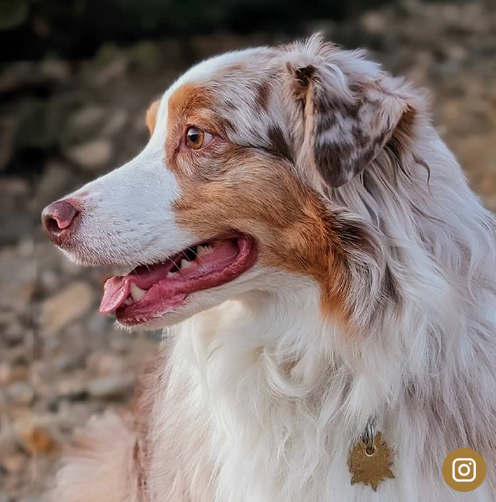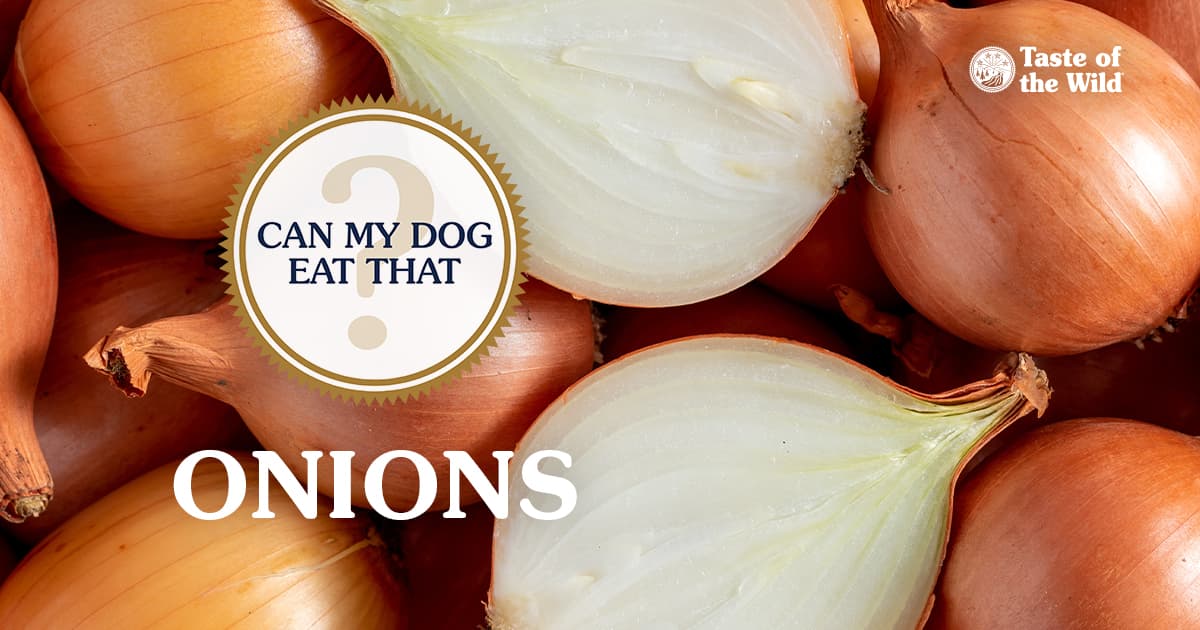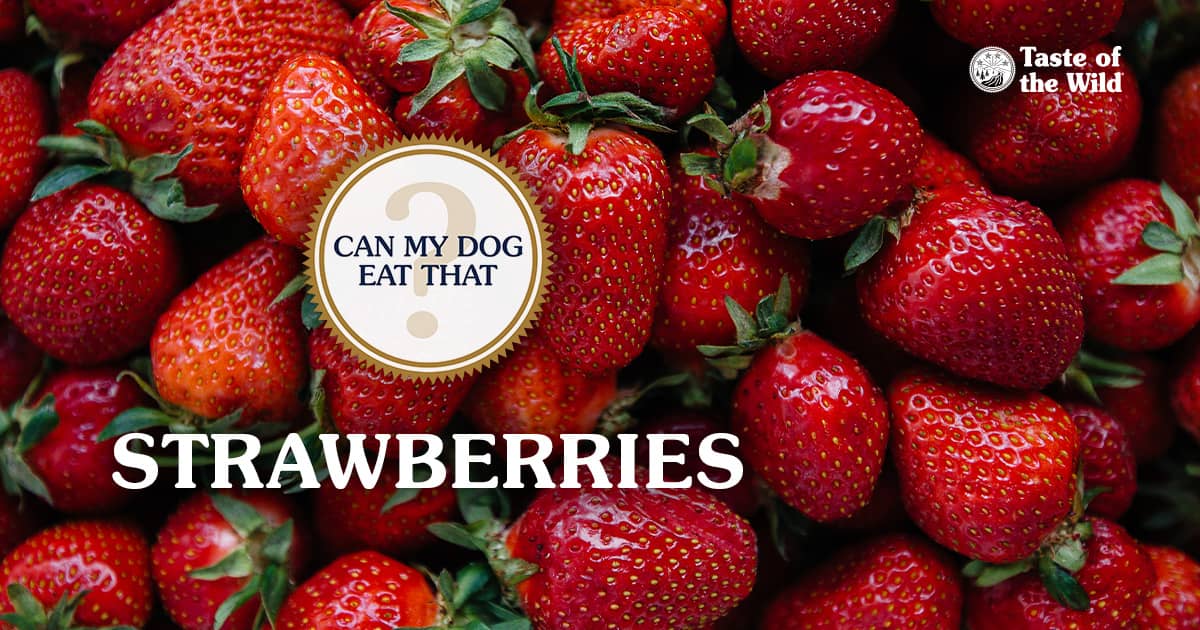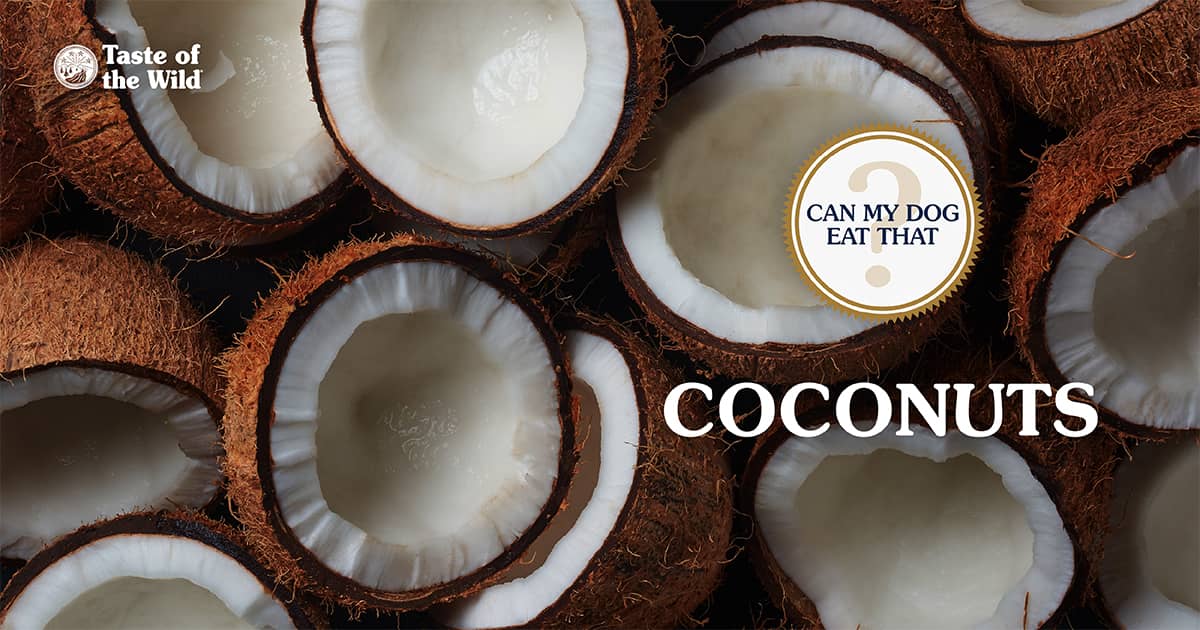Can My Dog Eat That? Turkey
Thursday, October 3, 2024 | Can My Dog Eat That
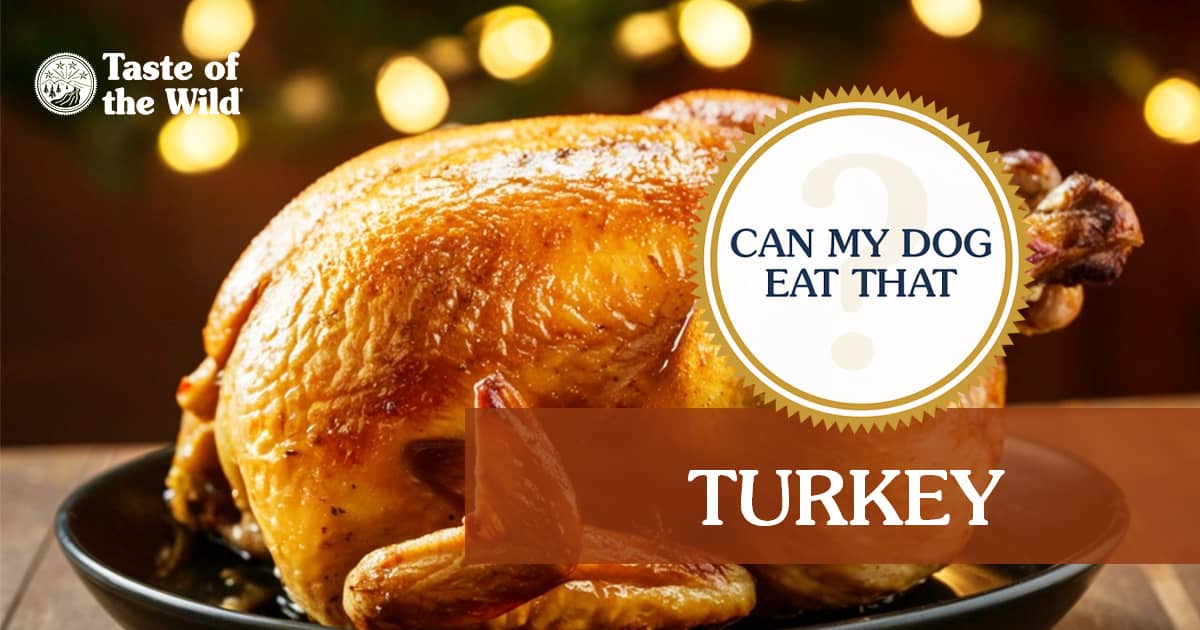
Welcome to “Can My Dog Eat That?,” our series that answers some obvious (and not-so-obvious) questions about what your dog can and can’t safely eat. You can view some of the previous foods we’ve looked at in our “Can my dog eat that?” guide. Today we answer the question “Can dogs eat turkey safely?” Read on!
If you’re carving a turkey on Thanksgiving (or any day) and you notice some puppy-dog eyes pleading at you from under the table, it may have you wondering, can you feed your dog turkey? We’ve gone over other Thanksgiving foods before, like ham, potatoes and cranberry sauce, so now let’s talk about the main event — the turkey.
Can Dogs Eat Turkey?
Turkey “meat” is definitely safe for your dog to eat — unless they’re allergic, of course. Turkey is an ingredient in commercial dog food, including some of our dog food formulas. But if you’re serving turkey at home, whether it’s safe for your dog or not depends on how you’re preparing it and which part of the turkey you’re serving.
Make sure you only serve your dog turkey that is fully cooked, as raw or undercooked turkey can contain Salmonella bacteria that can cause an upset gastrointestinal system. You should also avoid feeding your dog turkey skin (it’s too fatty) and turkey bones. Cooked or raw, the bones can easily splinter and damage your dog’s mouth or digestive tract and can also block their gastrointestinal tract. So stick with feeding them small amounts of the “turkey meat.”
Fun Fact: Turkey Isn’t Meat
That’s right — in the world of pet food, there’s no such thing as “turkey meat.” There are rules about how pet food ingredients are described, and one of them is that “meat” only comes from mammals. Muscle from non-mammalian species like turkeys, chickens, ducks or fish must be identified as poultry or fish or by their specific species (e.g., turkey, duck, salmon or tuna).
Is Turkey Good for Dogs?
Yes, like fish, fully cooked turkey is good for dogs and has nutritional benefits — depending on the part of the turkey. We use turkey in our dog food formulas because it’s a highly digestible, lean protein that enhances palatability (the tastiness). We use turkey liver as a nutritious source of iron and protein, and we use turkey broth, created from cooking turkey in water, in our canned products as a source of moisture.
The parts of the turkey that aren’t so good for dogs are the fatty parts. As much as most dogs would love the taste, turkey skins and trimmings are high in fat and difficult for your dog to digest. Eating fatty foods is not good for your dog’s health and can lead to pancreatitis, a painful inflammation of the pancreas that can lead to hospitalization. Symptoms of pancreatitis include vomiting, diarrhea, decreased activity, appetite loss and mild to severe abdominal pain. So make sure fat trimmings aren’t part of your dog’s diet.
What Type of Turkey Can Dogs Safely Eat?
While fully cooked turkey is safe for dogs to eat, it should still be considered a treat. How much turkey you can feed your dog depends on their recommended calorie intake. Turkey pieces or any treat should only provide up to 10% of your dog’s recommended daily calorie intake.
Can Dogs Eat Turkey Bacon or Turkey Sausage?
It’s not recommended for dogs to chow down on some bacon or turkey sausage because processed foods like these typically contain high amounts of sodium (salt), which isn’t healthy for dogs. Additionally, they may contain seasonings that are toxic to dogs (e.g., garlic and onion).
Can Dogs Eat Turkey Lunch Meat?
The answer is the same for this one. The high amounts of salt typically in turkey lunch “meat” make it an unhealthy choice for dogs.
Can Dogs Eat Turkey Burgers? What About Ground Turkey?
You can safely feed your dog a small amount of cooked ground turkey that doesn’t have any seasonings or other additives. If you make your own turkey burgers that are plain and cooked well, those are also fine. But store-bought turkey burgers will probably have seasonings added, so stay clear of those if so.
Can Dogs Eat Turkey Bones?
No. Turkey bones, especially cooked bones, can splinter and cause damage to your dog’s mouth and other parts of their digestive tract. They can also cause a blockage in their gastrointestinal tract. Raw bones are not okay either, for the reasons below.
Can Dogs Eat Raw Turkey?
No, dogs should not eat raw turkey or turkey bones as they may be contaminated with viruses, bacteria or parasites that put your dog at risk of becoming sick. The Centers for Disease Control and Prevention does not recommend feeding raw pet food or treats to dogs (or cats). So make sure you serve fully cooked turkey to your dog (and people)!
Should You Feed Your Dog Turkey?
You can safely feed turkey to your dog as a treat as long as it’s the lean portion, not the skin, fatty parts or bones, and it’s fully cooked. Make sure it’s plain turkey without gravy or seasonings, too.

The information in this blog has been developed with our veterinarian and is designed to help educate pet parents. If you have questions or concerns about your pet’s health or nutrition, please talk with your veterinarian.
